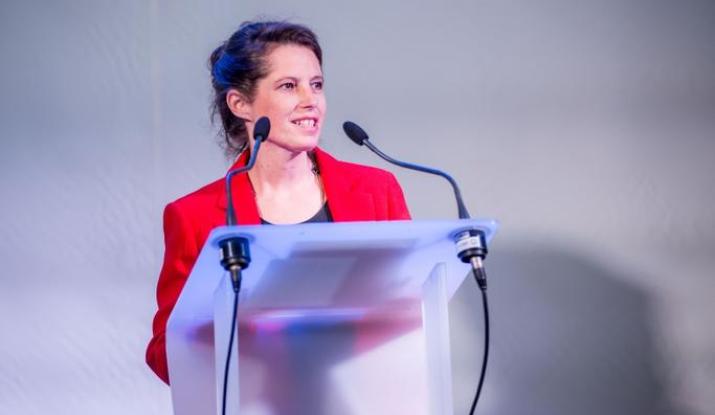Interview with Sophie Sidos
The Louis Vicat corporate foundation was created for the bicentennial of the invention of artificial cement. Its chairwoman, Sophie Sidos-Vicat, a seventh-generation descendent of Louis Vicat, presents the Foundation, one that is devoted to transmitting and advancing her ancestor's work through actions aimed at bringing attention to his discoveries and the values underlying his multiple commitments.
Why was the Louis Vicat Foundation created?
Sophie Sidos-Vicat: With over 160 years of history behind us, as the last family-run cement manufacturer in France, we wanted to create a corporate foundation dedicated perpetuating the memory of Louis Vicat's work. It is something that had been in my mind for many years. The bicentennial year of the invention of artificial cement struck me as being the right time to make it happen. The name of the Foundation seemed obvious, given that Louis Vicat made such a mark on the history of science. His scientific work is inseparable from the many personal and professional commitments for which he deserves to be better known, for today they can be of the greatest inspiration in carrying us forward on the road to progress in a world of far-reaching change. The Foundation’s aim is to continue the work of Louis Vicat, a man capable of wearing many hats, as an inventor, a painter, a theologian, etc. We will work to preserve his memory in respect principally of cement in order to put fresh life into the exceptional heritage of which we are the custodians.
How does the Foundation work to achieve its goal?
S.S.V.: The Foundation’s board of directors, which meets two or three times a year, defined three main missions of general interest. First off, we want to promote scientific and technical culture, based on the work of Louis Vicat: on cement, of course, a material that continues to adapt to social changes and is still the crux of construction and urban development, and also on concrete. Another focus for the Foundation’s attention is safeguarding exceptional heritage assets built with cement. We are not here to undertake restoration and renovation projects, but our role must be to spotlight such assets. And we want to take part in initiatives acting on education and solidarity, by working, for instance, with Louis Vicat High School in Souillac, a school that gives its pupils training on subjects such as architecture, the work of AC and heating technicians, and building technicians, fields whose professionals are receptive to the issue of cement quality. Although it has limited financial resources for fulfilling its missions, the Foundation will not be prevented from following several key lines of action. For transmitting culture and heritage is not a question of money but of determination and commitment.
What are the first things the Foundation did?
S.S.V.: We purchased the house where Louis Vicat used to live from the government, and are planning to give it a new lease of life as a public museum this year, for it is in Souillac, where he invented controlled artificial cement in 1817. Once renovated, the house at 10 Rue du Pont will be a permanent reminder of the breakthrough of artificial cement and the person behind it. In particular, we want to focus attention on the bread oven where Louis Vicat performed innumerable tests to find the right formulation of artificial cement. Also in Souillac, the Foundation has organized talks at Louis Vicat High School and has been behind initiatives for solidarity and education. We have also become a partner of Fondation Jacques Rougerie in support of its international architectural competition for audacious architects, designers and engineers who imagine novel solutions in response to the issues of ongoing climate change. On January 18, 2018, the Louis Vicat Prize in the Ports of the Future category was awarded in Paris, at the Institut de France. We have also supported the creative work of faux-bois craftsman Marc Olson in the creation of a mandorla of Saint Irénée made from PromptUP natural quick-setting cement that has been given to the Catholic University of Lyons.


